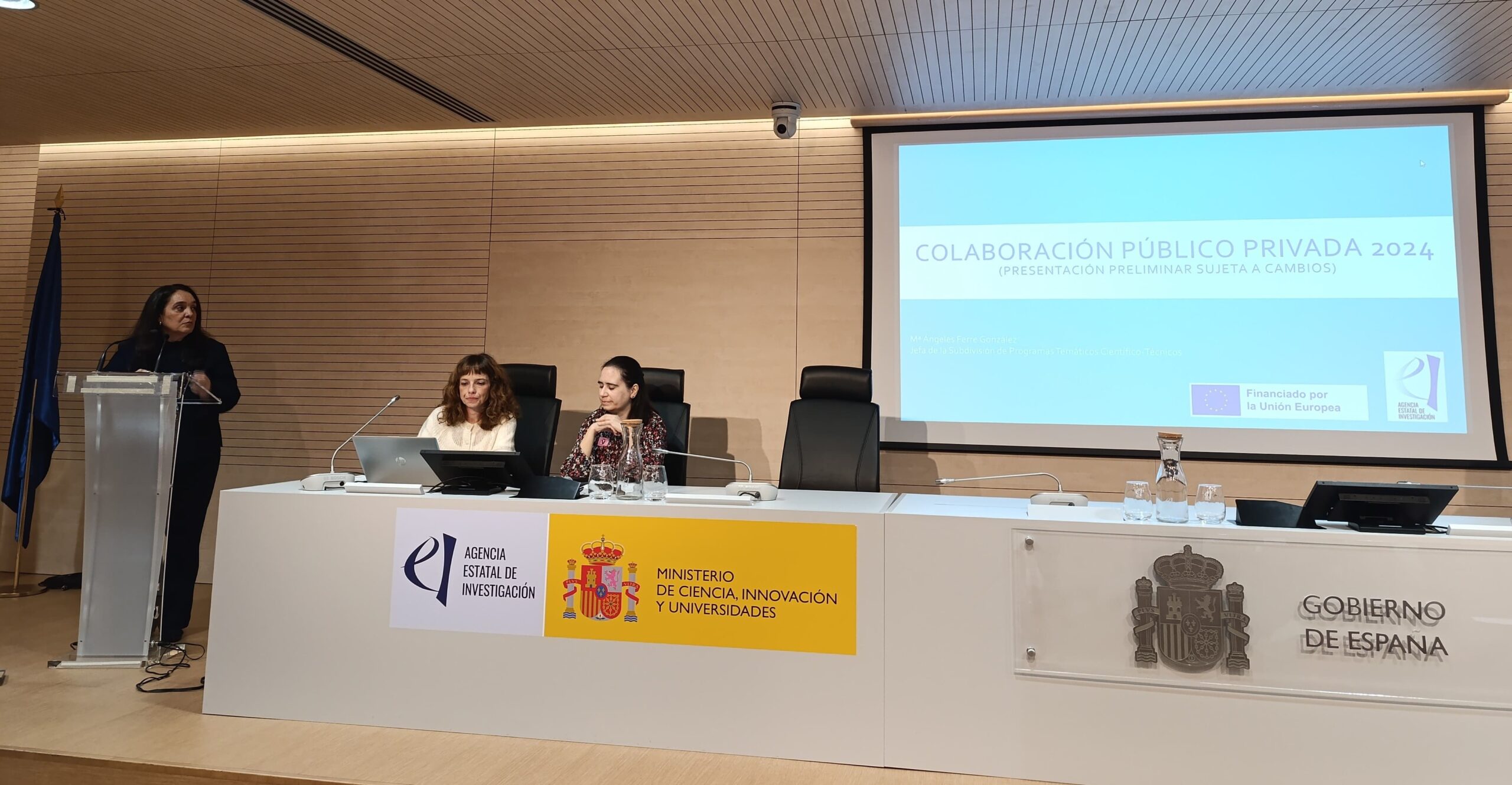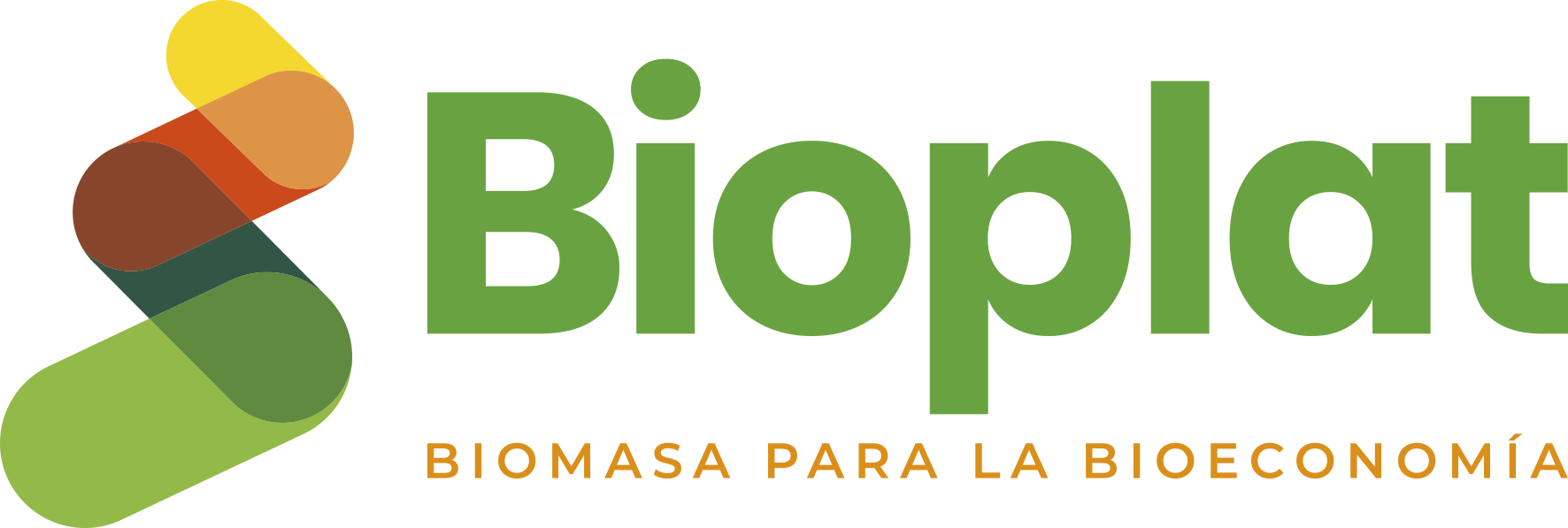14 Nov 2024
El Grupo Interplataformas GIEC highlights the potential of the circular economy in Spain and the importance of public-private collaboration to boost it.
 Yesterday, the annual conference of the Interplatform Group on Circular Economy (GIEC) took place at the State Research Agency, under the theme ‘Challenges and Opportunities for Public-Private Collaboration ’ in the field of circular economy. The event provided key information on public-private funding calls within the framework of the State Research Agency (AEI), the Centre for Technological Development and Innovation (CDTI) and the Ministry for Ecological Transition and the Demographic Challenge, as well as presenting proposals and success stories with the aim of inspiring new initiatives.
Yesterday, the annual conference of the Interplatform Group on Circular Economy (GIEC) took place at the State Research Agency, under the theme ‘Challenges and Opportunities for Public-Private Collaboration ’ in the field of circular economy. The event provided key information on public-private funding calls within the framework of the State Research Agency (AEI), the Centre for Technological Development and Innovation (CDTI) and the Ministry for Ecological Transition and the Demographic Challenge, as well as presenting proposals and success stories with the aim of inspiring new initiatives.
Paloma Pérez, coordinator of the Spanish Biocircularity Technology and Innovation Platform (BIOPLAT), presented the 31 Platforms that form part of the GIEC Group, which represent strategic sectors in Spain for the transition to a circular economy and contribute to the resolution of social challenges and the Sustainable Development Goals. She explained that the GIEC Interplatforms Group promotes the circular economy through public-private collaboration and R&D&I, contributes to the implementation of national and European strategies in this area, encourages the implementation of collaborative R&D&I projects and carries out various activities such as position papers, conferences and dissemination initiatives.
Mª Ángeles Ferre, head of the Scientific-Technical Thematic Programmes Subdivision of the State Research Agency, discussed the current public-private collaboration grants aimed at financing experimental development projects in collaboration between companies and research organisations. This call, with a total budget of 320 million euros, seeks to advance the incorporation of scientific-technical knowledge and results that enable the validation and pre-competitive development of new technologies, products and services that stimulate the generation of a critical mass in R&D&I for their application, transfer, search for solutions and generation of results in technological and innovation trajectories of companies and in the market. Ferre stressed that these projects aim to mobilise private investment, generate employment, improve Spain’s technological balance and the competitiveness of the business fabric.
Representing the Centre for Technological Development and Innovation (CDTI), Lydia González, from the Climate area (Cluster 5) and PNC from the Environment area (Cluster 6) of Horizon Europe, and María José Tomás, from the Institutional Promotion and Territorial Cooperation department, explained the different R&D&I funding opportunities offered by the organisation, with the focus on ‘helping to grow and create the future’. They also detailed the possibilities that Horizon Europe offers for R&D&I projects in circular economy, a cross-cutting area in the Strategic Plan 2025-2027 of this programme, which has also gained weight in the new political period and in the priorities of the European Commission for the coming years.
Alejandro Dorado, Commissioner for the Circular Economy, was in charge of providing the keys to the Ministry for Ecological Transition and the Demographic Challenge‘s PERTE for the Circular Economy. Dorado stressed that the purpose of this aid is to ‘promote sustainability and circularity in industrial and business processes to improve the competitiveness and innovation of the industrial fabric within the framework of a circular economy’. The commissioner stated that it is essential to promote the circular economy due to the current environmental need, the economic opportunity it represents, the job creation it generates and the strategic autonomy it entails for the country.
After each institutional presentation, a space was opened to share success stories and proposals presented in each of the calls of these organisations, with the intervention of a total of ten entities to present the following projects:
- WILDBIOPHAGE: new probiotics and phages to combat the incidence of Enterococcus in poultry farming. Sandra Sevilla-Navarro. CECAV
- CHITINMETICS: valorisation of chitosan for the production of sustainable plastics for the cosmetic industry and to ecologise the properties of cosmetics. Sofia Garro. Tebrio
- ACICORK (climatically intelligent cork oak forests): tools for forest management and monitoring, cork characterisation and the fight against Seca ( cinnamomi). Mariola Sánchez. CIFOR-INIA-CSIC
- ECOVir-Mg: Feasibility of a circular process to manufacture magnesium alloy profiles and tubes from recycled machining chips. Gerardo Garcés. CENIM-CSIC
- REBIOWIND: biological recycling of composite materials for the energy and aeronautical sectors. Noelia Mendoza. Aragon Institute of Technology (ITA).
- MEDINSPAIN: innovative methods and national value chain for the circularity of energy storage systems, including sorting.RENEMAG: RECYCLING and New Circular Economy of
- MAGNETIC materials from the wind energy sector. Ibon Ocaña. CEIT-BRTAECOPIGMENT: Manufacture of Fe-based pigments from metallurgical waste for use in microcements. Vicente Sales. AIDIMME
- REGATEX – Pilot plant for the recovery of textile fibres and INNCENSAS – Project for the recovery of ashes from the boiler of the Pontevedra biofactory. Antonio Casal. ENCE Energy and Cellulose
- FUTURECORK: transformative project for the promotion of the bioeconomy in the cork sector. Mariola Sánchez. CIFOR-INIA-CSIC
